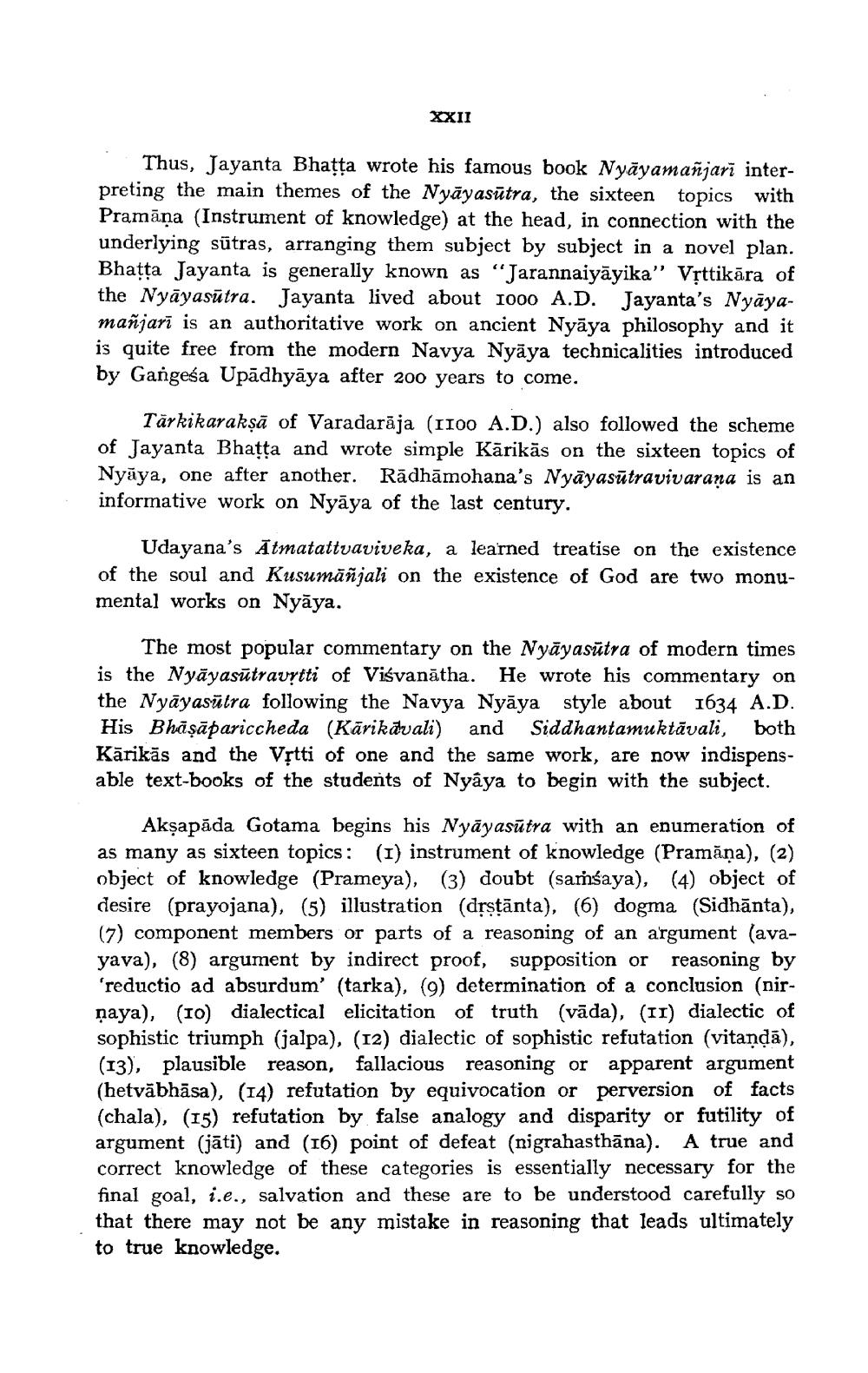________________
XXII
Thus, Jayanta Bhatta wrote his famous book Nyāyamañjarī interpreting the main themes of the Nyāyasūtra, the sixteen topics with Pramāņa (Instrument of knowledge) at the head, in connection with the underlying sūtras, arranging them subject by subject in a novel plan. Bhatta Jayanta is generally known as “Jarannaiyāyika" Vșttikāra of the Nyāyasūtra. Jayanta lived about 1000 A.D. Jayanta's Nyāyamañjarī is an authoritative work on ancient Nyāya philosophy and it is quite free from the modern Navya Nyāya technicalities introduced by Gangesa Upādhyāya after 200 years to come.
Tärkikaraksā of Varadarāja (1100 A.D.) also followed the scheme of Jayanta Bhatta and wrote simple Kārikās on the sixteen topics of Nyāya, one after another. Rādhāmohana's Nyāyasūtravivarana is an informative work on Nyāya of the last century.
Udayana's Ātmatattvaviveka, a learned treatise on the existence of the soul and Kusumāñjali on the existence of God are two monumental works on Nyāya.
The most popular commentary on the Nyāyasūtra of modern times is the Nyāyasūtravytti of Visvanātha. He wrote his commentary on the Nyāyasütra following the Navya Nyāya style about 1634 A.D. His Bhaşāpariccheda (Kārikavali) and Siddhantamuktāvali, both Kārikās and the Vștti of one and the same work, are now indispensable text-books of the students of Nyaya to begin with the subject.
Aksapăda Gotama begins his Nyāyasūtra with an enumeration of as many as sixteen topics: (1) instrument of knowledge (Pramāna), (2) object of knowledge (Prameya), (3) doubt (samsaya), (4) object of desire (prayojana), (5) illustration (drstānta), (6) dogma (Sidhānta), (7) component members or parts of a reasoning of an argument (avayava), (8) argument by indirect proof, supposition or reasoning by 'reductio ad absurdum' (tarka), (9) determination of a conclusion (nirņaya) (10) dialectical elicitation of truth (vāda), (II) dialectic of sophistic triumph (jalpa), (12) dialectic of sophistic refutation (vitandā), (13), plausible reason, fallacious reasoning or apparent argument (hetvābhāsa), (14) refutation by equivocation or perversion of facts (chala), (15) refutation by false analogy and disparity or futility of argument (jāti) and (16) point of defeat (nigrahasthāna). A true and correct knowledge of these categories is essentially necessary for the final goal, i.e., salvation and these are to be understood carefully so that there may not be any mistake in reasoning that leads ultimately to true knowledge.




